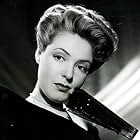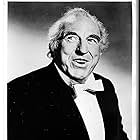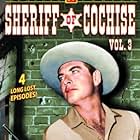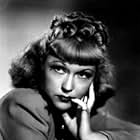When neurotic bedridden wife Leona Stevenson overhears a murder plot on her telephone, she tries to piece the puzzle together and prevent the murder. Based on Lucille Fletcher's famous radio... Read allWhen neurotic bedridden wife Leona Stevenson overhears a murder plot on her telephone, she tries to piece the puzzle together and prevent the murder. Based on Lucille Fletcher's famous radio play.When neurotic bedridden wife Leona Stevenson overhears a murder plot on her telephone, she tries to piece the puzzle together and prevent the murder. Based on Lucille Fletcher's famous radio play.
- Nominated for 1 Oscar
- 3 nominations total
- Page Boy
- (uncredited)
- Police Sergeant Duffy
- (uncredited)
- Cotterell's Blonde Girlfriend
- (uncredited)
- Clam Digger
- (uncredited)
- French Maid
- (uncredited)
- Cigarette Girl
- (uncredited)
Storyline
Did you know
- TriviaAnatole Litvak: Where Henry is having lunch with Sally, he asks his waiter if he knows who the gentleman is in the dark glasses at the table behind him. It is the director.
- GoofsTwice, Leona turns on a radio, and music begins instantly and strongly. Radios of the film's era contained vacuum tubes that needed some time to warm up.
- Quotes
Henry Stevenson: [to Leona] I want you to do something. I want you to get yourself out of the bed, and get over to the window and scream as loud as you can. Otherwise you only have another three minutes to live.
- Crazy creditsPROLOGUE: "In the tangled networks of a great city, the telephone is the unseen link between a million lives...It is the servant of our common needs-the confidante of our inmost secrets...life and happiness wait upon its ring...and horror...and loneliness...and...death!!!"
- ConnectionsEdited into Dead Men Don't Wear Plaid (1982)
You can tell this thriller was once a radio play--it is mostly talk, and often over the telephone. But what drama can be built on a string of conversations around the office, in cars in the rain, out on a lonely beach on Staten Island, and on the telephone, often filled with mystery and doom.\
Not that it's not a visual movie, either. There is a big gloomy house, and lots of dark city streets. Shadows and moving camera and close-ups of faces and telephones, all keep you glued and increasingly worried. By the end, the really jarring, memorable end, you are ready for what you can never be ready for.
Beware, the plot is confusing. Even seeing it twice I had to pay attention to who was who, and what turn of events had just taken place. Part of the reason is there is a bewildering use of flashbacks, even flashbacks within flashbacks, told by all kinds of different characters. The plot is laid out methodically, but take notes as you go, or at least take note. The initial overheard phone call is key to it all, and it gets reinforced later somewhat, but pay heed there.
And the person on the phone? A sharp, bitter, convincing Barbara Stanwyck, who really knows how to be steely and vulnerable at the same time. Burt Lancaster is more solid and stolid, and maybe less persuasive overall, but he carries a more practical part of the story. It keeps coming back to Stanwyck in bed, and the telephone which is her contact with the facts, as they swirl and finally descend.
Director Anatole Litvak has some less known but thrilling dark dramas to look for, including Snake Pit. But this is his most sensational winner, partly for Stanwyck, and partly for the last five minutes, which is as good as drama gets.
- secondtake
- May 12, 2010
- Permalink
- How long is Sorry, Wrong Number?Powered by Alexa
Details
- Release date
- Country of origin
- Language
- Also known as
- Al filo de la noche
- Filming locations
- Hollywood, California, USA(telephone switchboard at a telephone company office on Gower St.)
- Production company
- See more company credits at IMDbPro
Box office
- Gross worldwide
- $1,974
- Runtime1 hour 29 minutes
- Color
- Aspect ratio
- 1.33 : 1
Contribute to this page






































